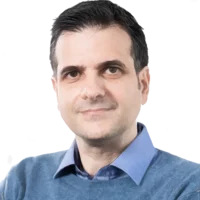Energie Trialog Schweiz: Policies and measures for energy efficiency technology innovation and diffusion in Switzerland
The project seeks to improve understanding of how a sustainable Swiss energy system can be realized, in terms of technology options (for energy supply, conversion and end-use) and policy measures. The work will focus particularly on assessing the potential to improve energy efficiency (through the deployment and diffusion of energy-efficient technologies) in Switzerland during the first half of this century, and thereby contribute to the broader policy goals of climate change mitigation, energy security, technology leadership and competitiveness. This will be complemented by an assessment of policies and measures that may support the realization of the identified energy efficiency potential by promoting energy technology innovation diffusion and deployment.
The central themes of the Trialog focus on the need for a sustainable energy policy to maintain strong economic growth by: strengthening the innovative capacity and competitiveness of the Swiss economy; enhancing efficiency in energy production, transmission and consumption; reducing negative externalities; protecting natural resources and human health; and maintaining security of supply and access to energy and mobility services. The overarching questions to be addressed by the Energy Economics Group’s contribution to the Trialog are as follows:
The analysis will be conducted primarily using the energy-system Swiss MARKAL model. The MARKAL approach refers to a perfect-foresight, optimization model with a detailed representation of energy technologies at the primary, secondary and useful energy levels. Due to the latter characteristic, these models are commonly referred to as "bottom-up" models. To facilitate an assessment of the potential role of energy efficiency in future transitions to a sustainable Swiss energy system, the Swiss MARKAL model will be extended through the implementation of specific technology options in the industrial, commercial building and freight transport sectors (complementing earlier work in the residential and passenger transport sectors). The Swiss MARKAL model will then be used to develop alternative scenarios of the evolution of the Swiss energy system in the next 50 years. Implementation issues, including policy measures and addressing behavioural and other barriers will be addressed, and may require implementation in MARKAL of, for example, additional transaction costs, ‘hurdle rates’, and/or alternative discount rates, guided by other studies and modeling activities.
The central themes of the Trialog focus on the need for a sustainable energy policy to maintain strong economic growth by: strengthening the innovative capacity and competitiveness of the Swiss economy; enhancing efficiency in energy production, transmission and consumption; reducing negative externalities; protecting natural resources and human health; and maintaining security of supply and access to energy and mobility services. The overarching questions to be addressed by the Energy Economics Group’s contribution to the Trialog are as follows:
- What are the energy technology strategies towards a sustainable energy system in Switzerland?
- What is the potential contribution of energy efficiency measures, including in the buildings, transport and industry sectors, to achieving a sustainable and competitive energy system?
- How could these energy technology strategies be implemented, which are the barriers and supporting policy instruments in the Swiss context?
The analysis will be conducted primarily using the energy-system Swiss MARKAL model. The MARKAL approach refers to a perfect-foresight, optimization model with a detailed representation of energy technologies at the primary, secondary and useful energy levels. Due to the latter characteristic, these models are commonly referred to as "bottom-up" models. To facilitate an assessment of the potential role of energy efficiency in future transitions to a sustainable Swiss energy system, the Swiss MARKAL model will be extended through the implementation of specific technology options in the industrial, commercial building and freight transport sectors (complementing earlier work in the residential and passenger transport sectors). The Swiss MARKAL model will then be used to develop alternative scenarios of the evolution of the Swiss energy system in the next 50 years. Implementation issues, including policy measures and addressing behavioural and other barriers will be addressed, and may require implementation in MARKAL of, for example, additional transaction costs, ‘hurdle rates’, and/or alternative discount rates, guided by other studies and modeling activities.
Researchers
- A. Wokaun
- Hal Turton
- Nicolas Weidmann
Relevant publications
Bauer, C., W. Schenler, A. Marcucci, S. Hirschberg, P. Burgherr, S. Roth and N. Zepf (2009). Systemvergleich von Strom- und Wärmeversorgung mit zentralen und dezentralen Anlagen: Eine Studie im Rahmen des „Energietrialog Schweiz", Paul Scherrer Institute and Axpo Holding AG, Download (4.3MB)
Weidmann, N., H. Turton and A. Wokaun (2009). Contribution to the "Energie-Strategie 2050. Impulse für die schweizerische Energiepolitik", pp. 86-91, Energie Trialog Schweiz, Download (2MB)
Weidmann, N. (2013). Transformation strategies towards a sustainable Swiss energy system, Ph.D. Thesis, Nr. 21137, ETH Zürich, DOI: 10.3929/ethz-a-009962867
Weidmann, N., H. Turton and A. Wokaun (2009). Contribution to the "Energie-Strategie 2050. Impulse für die schweizerische Energiepolitik", pp. 86-91, Energie Trialog Schweiz, Download (2MB)
Weidmann, N. (2013). Transformation strategies towards a sustainable Swiss energy system, Ph.D. Thesis, Nr. 21137, ETH Zürich, DOI: 10.3929/ethz-a-009962867
